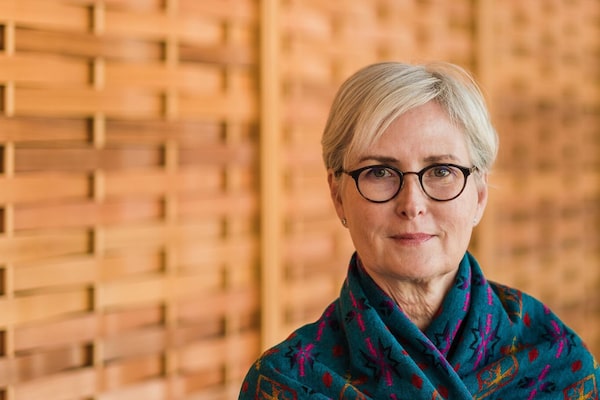
The report from the Law Society of B.C. said Mary Ellen Turpel-Lafond 'most likely has very recent ancestors' who were Indigenous.Supplied
DNA results from a test provided by Mary Ellen Turpel-Lafond, whose claims to Indigenous identity and academic achievements were questioned in a media investigation, indicate she “most likely” has the heritage she has claimed, a report from the Law Society of B.C. says.
The society report, made public Thursday, also reprimanded Ms. Turpel-Lafond, saying she has agreed to pay $10,000 to a non-profit group after admitting misconduct by making misrepresentations in biographical information she has submitted to various bodies.
The legal regulator said that it was not asked to consider issues regarding Ms. Turpel-Lafond prior to her becoming a member of the Law Society of B.C. in 2018, including issues related to her identity as an Indigenous person.
For decades Ms. Turpel-Lafond was a widely respected figure in Canadian law serving as Saskatchewan judge and a legal scholar, as B.C.’s Representative for Children and Youth, and as director of the Indian Residential School History and Dialogue Centre.
A statement of facts agreed to by the law society and Ms. Turpel-Lafond noted she requested her own DNA test last year.
“The DNA test results indicate that genomic markers known to be disproportionately present in Indigenous populations are present in the lawyer’s DNA sequencing results,” the report says.
It adds that Ms. Turpel-Lafond “most likely has very recent ancestors” who were Indigenous.
Ms. Turpel-Lafond’s background was questioned by a CBC report in 2022 that cast doubt on her past descriptions of herself as a treaty Indian of Cree ancestry, while also questioning several of her claimed academic or career credentials.
But in the wake of the CBC story, she left her job at UBC’s law school and also was removed from the Order of Canada at her request. Several universities rescinded honorary degrees they had awarded her.
Ms. Turpel-Lafond released a statement Thursday saying the DNA findings were a vindication. “I am grateful to have this matter behind me. I was raised by a Cree father and Scottish mother. I should not have had to prove who I am,” she said.
CBC’s head of public affairs, Chuck Thompson, said the public broadcaster stands by its earlier reporting.
“We welcome new information, which CBC News will examine as we would any new elements of a story that come to light,” he said.
Simon Gravel, assistant professor of human genetics at McGill University, said he reviewed the methodology of the firm that conducted Ms. Turpel-Lafond’s DNA test.
“It was substantial ancestry; we’re not talking about somebody with traces of Indigenous ancestry,” Prof. Gravel said in an interview.
Mr. Gravel said the DNA indicated Indigenous ancestry being passed down by a parent or grandparent: “Consistent with an individual being broadly European and just having trace amounts from 10 generations ago? This is not that.”
The test results, provided by California company Nebula Genomics, have not been made public. Mr. Gravel said he could not speak more precisely about the findings in the initial report.
Dr. Kim TallBear, a professor for the faculty of native studies at the University of Alberta, said she would like to see Ms. Turpel-Lafond’s DNA test to verify where her Indigenous ancestry comes from.
“If her dad is ‘full-blood Cree,’ meaning he’s got two parents [who are Cree], she should have 50-per-cent Native American ancestry, roughly,” she said.
Ms. Turpel-Lafond became a member of the B.C. bar in 2018. This month, the professional lawyers regulatory body, which investigates complaints in the province, found that she misstated some of her credentials to the law society that year and also when she gave testimony to the National Inquiry into Missing and Murdered Indigenous Women and Girls.
These were “representations that the Lawyer knew or ought to have known were false or inaccurate,” the law society says.
For example, the society says that Ms. Turpel-Lafond “has never been called to the bar of New Brunswick and her statement to that effect was in error” and that “the lawyer did not co-author a book in 2017 titled Indigenous Customary Adoption and Reconciliation.” (A document by that name was co-authored by Ms. Turpel-Lafond but not published.)
The report says Ms. Turpel-Lafond also made misstatements about the dates of when she attended certain academic institutions or held certain jobs.
“She explains that her errors were a product of poor recordkeeping and were not directed at enhancing her status,” the law society’s consent agreement says.
The statement of facts says that Ms. Turpel-Lafond is remorseful.
“At all times during the consent agreement resolution process, the Lawyer was cooperative with Law Society counsel and made all appropriate admissions.”